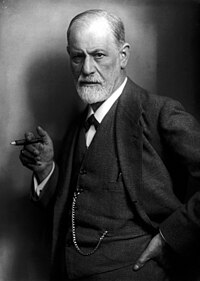The discovery of the 'subconscious' was a treasure trove. Now it could problematise agency (the self) only to extend it (the subconscious). Now it could find actions ('Freudian slips') where previously only accidents had been.
Yet what one thinks was the subconscious; slips of the tongue, neurotic symptoms, dreams, is not some ‘other’ or ‘stage’ as Freud used to call it. It can be argued that what these manifestation are is in fact an enlargement of consciousness.
If we view things this way we have a widening of the very concept of intention so as to catch these aberrant phenomena (slips of the tongue) in the net and make them willed. What is conferred on them now is not the subconscious manifesting itself in the 'Freudian slip', but no more than the meaningfulness of the conscious act.
Yet what one thinks was the subconscious; slips of the tongue, neurotic symptoms, dreams, is not some ‘other’ or ‘stage’ as Freud used to call it. It can be argued that what these manifestation are is in fact an enlargement of consciousness.
If we view things this way we have a widening of the very concept of intention so as to catch these aberrant phenomena (slips of the tongue) in the net and make them willed. What is conferred on them now is not the subconscious manifesting itself in the 'Freudian slip', but no more than the meaningfulness of the conscious act.
This view turns Freud (excellent writer as he was) into another historical figure, a local text; just another of our exhibits no more or no less privileged than any other ‘exhibit’, and it sets psychoanalysis back into its place - as the compulson not to let chance count as chance.

No comments:
Post a Comment